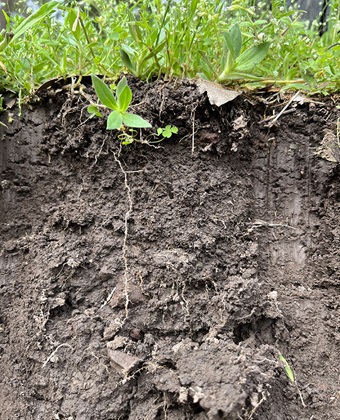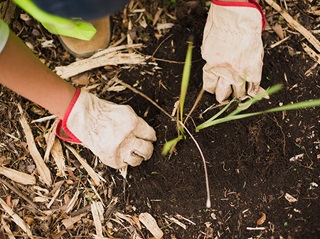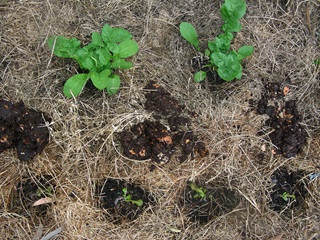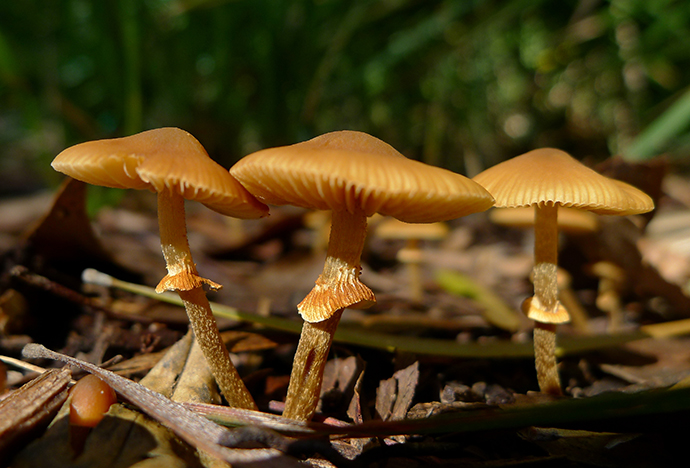 It’s important to know what sort of soil you have in your garden. This can help you work out what plants will grow best.
It’s important to know what sort of soil you have in your garden. This can help you work out what plants will grow best.
Sydney has many different soil types that fall in to two major groups:
- sandy soils, which come from sandstone
- clay soils, which come from shale or volcanic rocks.
Some soils may be a mix of the two. Some plants only grow well on one of these soils, whereas others will adapt and grow on both.
Soil pH is an important consideration for Sydney gardeners. Most soils in Sydney are acid (pH of less than 6.0). You can find out what your soil pH is with a simple test that you can buy from a nursery or hardware shop.
Soil colour is also important. Colour is a good indicator of drainage. Brighter subsoil colours like red, brown and yellow are usually associated with well drained soils. Dark browns usually mean the soil contains a lot of organic matter, whereas paler colours in the subsoil like murky yellow and grey usually indicate poor drainage.
Before you choose plants for your garden, find out what varieties suit your soil conditions. Read the label before you buy a plant as this usually includes information about soil type.
Looking after your soil and the life in it

Healthy soils are home to many soil animals including insects, invertebrates and worms that:
- help aerate our soils
- help water to penetrate more deeply
- eat fallen plant matter and convert it into nutrients for plants.
Microorganisms, including bacteria, fungi and tiny worms, are also essential for healthy soils. These organisms:
- help plants take up nutrients or change nutrients into a form plants can absorb
- help break down dead plant or animal matter
- reduce the likelihood of plant diseases.




